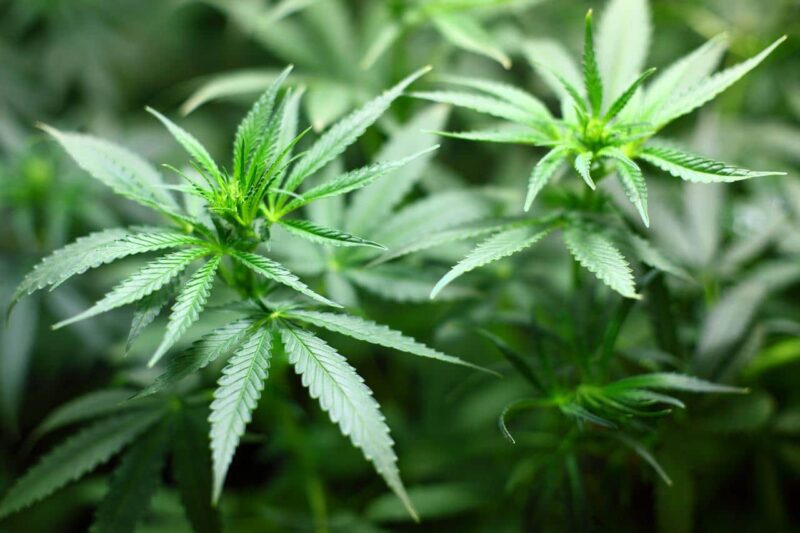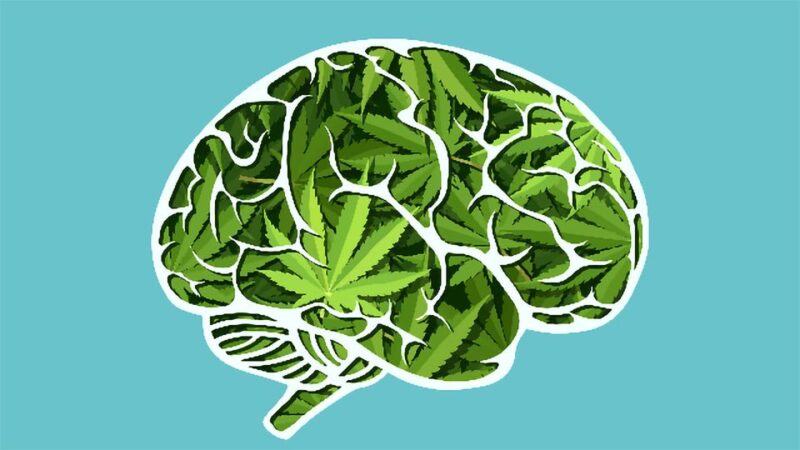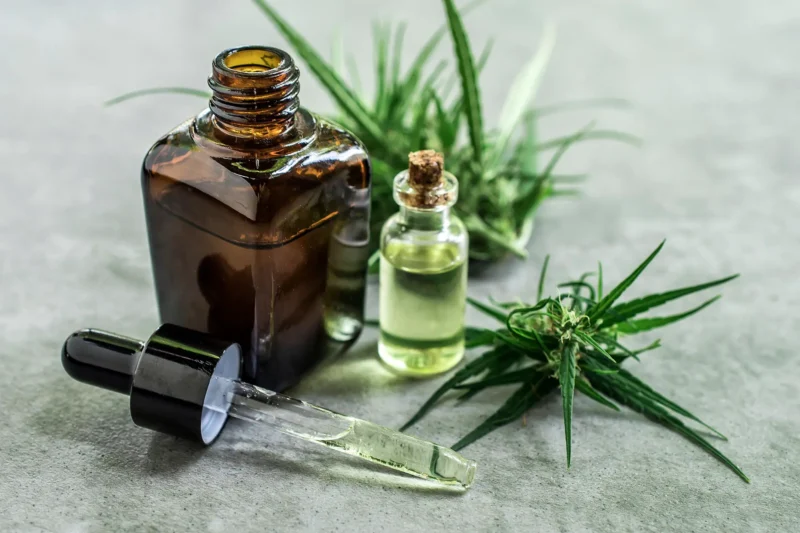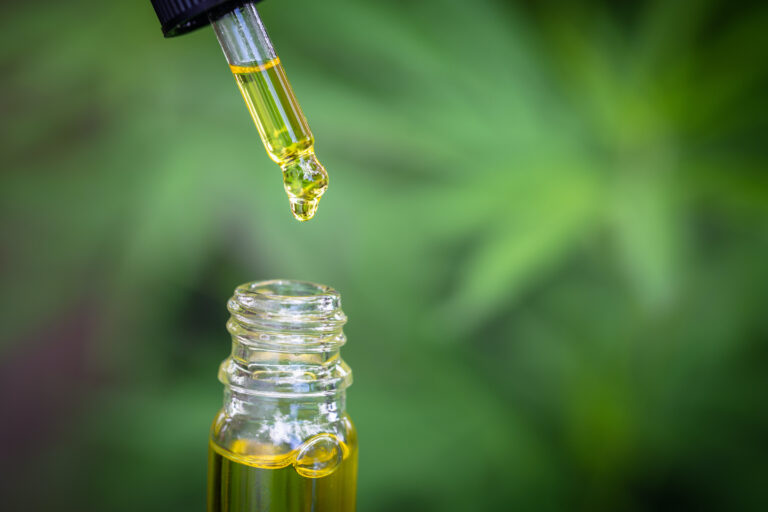Cannabidiol (CBD) is one of many natural compounds known as cannabinoids, which can be found in the cannabis plant. CBD has rapidly been gaining popularity among herbal remedy enthusiasts for the last few years, many of whom recommend it for everything from chronic pain to inflammation to gastrointestinal problems. And CBD’s alleged health benefits don’t stop at treating physical conditions, either. More and more people are also using it to help with mental health problems such as depression and anxiety.
If you’ve been contemplating trying CBD for your mental health, you’ll want to be properly informed before scheduling your next cannabis delivery. This guide explains the nature of CBD, its effects on the body, and what we know so far regarding its potential as a treatment for depression and anxiety.
An In-Depth Look at CBD

As mentioned above, the cannabis plant contains hundreds of naturally occurring chemical compounds known as cannabinoids. CBD is one of the two primary cannabinoids found in cannabis alongside tetrahydrocannabinol (THC). While THC has psychoactive properties that produce the “high” many people associate with consuming cannabis, CBD has no such effect. This is just one of the reasons that so many people are open to trying CBD as an herbal remedy.
At present, the FDA has only approved the use of CBD in the drug Epidiolex, an oral solution used to treat seizures associated with Dravet syndrome, Lennox-Gastaut syndrome, or tuberous sclerosis complex. Current research on CBD is limited, and using CBD for other purposes is largely unregulated. Thus, it’s best for individuals interested in CBD for therapeutic purposes to consume it cautiously and to always seek professional medical advice before doing so.
Understanding CBD’s Effect on the Brain

Our bodies contain multiple transmitter systems that convey chemical signals to and from different organs. Some of these are already familiar to most people, such as the sympathetic nervous system, which is responsible for the fight-or-flight response.
The endocannabinoid system (ECS) is a more recently discovered system and therefore less widely known. Despite its comparative obscurity, however, the ECS is also one of the body’s largest transmitter systems and also one of the most critical for everyday functioning. The ECS controls almost every significant internal function humans have, including but not limited to immune responses, pain, sensation, movement, and even mental functions like memory, mood, and concentration.
Understanding the ECS and how it works is critical to understanding how CBD affects the brain. Taking CBD essentially supports and facilitates the work the ECS already does to sustain critical bodily functions. For instance, researchers believe that the calming effects that CBD is known for are the result of the CBD binding to the CB 1 receptor, which is one of the main receptors within the ECS. Found mostly in the brain, the CB 1 receptor is responsible for alleviating inflammation in the nervous system and modulating the body’s response to serotonin, a critical neurotransmitter for controlling mood.
Is CBD Effective for Treating Anxiety and Depression?

Anxiety and depression are mental health conditions that have significant detrimental effects on mood, sleep, and even pain. CBD’s potential effectivity as a depression and anxiety treatment hinges mostly on its ability to positively influence the body’s pain perception, mood regulation, and sleeping processes. By helping to shore up these critical bodily functions, CBD can support better mental health for anxious and depressed individuals.
More particularly, CBD oil benefits for depression and anxiety are primarily related to its apparent positive effect on the brain’s serotonin receptors. As previously mentioned, serotonin is a critical neurotransmitter for mood regulation, and abundant research exists identifying low serotonin as a contributing factor to depression. While CBD doesn’t necessarily make the brain produce more serotonin, as many antidepressant medications do, it may help chemical receptors in the brain respond better to serotonin already present in the body. One animal study performed in 2014 found that CBD’s effect on these receptors helped alleviate symptoms of both depression and anxiety.
Experts are particularly hopeful about CBD’s positive effects on the length, depth, and duration of a person’s sleep. The drug has successfully been used to reduce the time it takes for a patient to fall asleep. It has also helped with treating parasomnias and sleep disorders like sleepwalking, nightmares, and jaw grinding. These findings are especially important considering the importance of quality sleep for optimal mental and physical health, as well as the fact that the majority of people suffering from depression and anxiety complain of poor sleep.
It’s worth remembering that while preliminary research and anecdotal evidence on CBD’s efficacy as a depression and anxiety treatment is promising, it’s not yet conclusive. As most studies conducted around CBD in the last decade have been performed on animals, its health benefits for humans are mostly speculative at the moment. Furthermore, different samples of CBD can vary widely in terms of their effects on human subjects, which makes it difficult to make general recommendations regarding the drug’s effectiveness. Other factors like genetics and the severity of an individual’s mental health condition also play a role in how well someone will respond to CBD.
In conclusion, CBD can’t be used as a standalone treatment for depression and anxiety, nor should it serve as a substitute for better-known interventions like medicines and talk therapy. It may be beneficial, however, to take CBD alongside other anti-anxiety or antidepressant medications, particularly in the days before these medications fully take effect. It’s always best to discuss your condition with your mental health provider or primary care doctor before incorporating CBD into your treatment plan.

